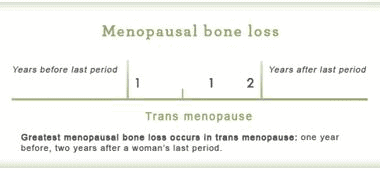 Type 2 Diabetes To Kidney Failure: Obesity Can Be A Sign of Some Major Health Ailments
Type 2 Diabetes To Kidney Failure: Obesity Can Be A Sign of Some Major Health Ailments
Obesity is a growing health concern among people of different age groups. To stay healthy and ensure longevity, people purposefully work to reach this magic number on their fitness trackers. But does taking all those steps help prevent chronic diseases like diabetes and obesity? According to Dr Mayank Madan, Department of GI Minimal Access and Bariatric Surgery, The CK Birla Hospital, Gurugram, “Obesity means excessive body mass which is measured by Body Mass Index (BMI).” BMI is calculated by taking the weight and height of an individual. A BMI less than 25 comes under the normal range. An individual with a BMI of 25-30 is termed as overweight and above 30 as obese. A BMI over 40 is called super obese.
How Does Obesity Affect Your Organs?
Obesity has become a pandemic with over 40% of the world’s population being overweight and 13% of the adult population of the world as obese. The health impact of excessive body weight is enormous. For example, a person with a normal BMI value weighed at 60 kgs makes their heart pump blood through that body mass. If that same person becomes overweight by up to 90 kgs then the heart will be pressured to pump blood through an excess of 30 kgs of weight. Such pressure on all parts of the body leads the organs to deteriorate faster.”
Dr Mayank further elaborates that obesity has a major impact on the cardiovascular system with risks of cardiovascular events like myocardial infections, and heart failure. The person can develop high blood pressure (hypotension), chances of stroke, asthma, obstructive sleep apnoea, and metabolism. Overweight people develop insulin resistance leading to type 2 diabetes. This has consequences on other parts of the body such as the eyesight, kidneys, and peripheral vascular disease (PVD). Fat deposition in the liver (fatty liver) leads to psoriasis. Other problems include incidents of gallstones and problems related to the skin as panniculus. Obesity can also have a direct/indirect impact on cancers like endometrial, uterine, ovarian, breast, and gastrointestinal cancers.
Side Effects of Obesity
Addressing the hormonal effects of obesity, Dr Mayank also said that it can incite a chronic inflammatory response in the body. Additionally, there is a secretary role, excessive fat can convert male hormones into female hormones, and the opposite causes infertility, subfertility, menstruation disorders, and difficulties in pregnancy. Stresses such as these have an impact on the mood and can cause depressive episodes. The musculoskeletal system is affected causing back and joint problems. All organs are directly or indirectly impacted by excessive body weight.
Dr Sudhir A Jadhav, Bariatric Surgeon, Manipal Hospital, Kharadi – Pune Kharadi said, “When people find themselves suffering from obesity, it is easy to get impatient and seek quick solutions but that is not the right way to go. Managing obesity is a long-term process and can have different results. The best strategies for tackling obesity include healthy eating behaviours, progressively increased physical activity and reduced inactive routines throughout the day. It has been seen that a sedentary lifestyle is highly responsible for increased obesity, especially among the younger generations. Therefore, one must include at least 30 mins of daily exercise and have some form of physical activity throughout the day. Apart from that, adding wholesome food like green, leafy vegetables, beans, sprouts and yoghurt play an important role in managing the body mass index (BMI). The key to getting great results is consistency. Along with this, it is important to take care of other ailments that are associated with obesity such as mental distress, high blood pressure, and diabetes.”
Dr Sudhir also emphasized that apart from making dietary changes and physical activity, there are other treatment options that a person suffering from obesity can choose from. One of the prevalent treatment options is Bariatric Surgery, which is a minimally invasive procedure that helps reduce food consumption and help weight loss by removing a part of the stomach thereby reducing its size. Weight loss medication and gastric bypass surgery are very useful and strong tools for one to help reduce excess weight and take care of associated illnesses. The bypass procedure enables food to bypass the stomach and the initial part of the small intestine. Obesity is a lifestyle disorder that can be managed well if a person pays attention to their daily routine and food habits.









